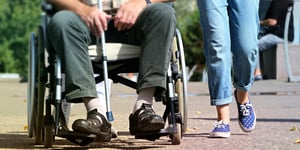Most of us have heard of a Health Savings Account (HSA), but many don't understand the...


Most of us have heard of a Health Savings Account (HSA), but many don't understand the...

The U.S. Department of Health and Human Services estimated in 2020 that 50-70% of those now...

Planning for in-home care is often an overlooked consideration for many individuals. However, it is...

Falls, with their potential to cause traumatic injuries, are a serious concern that can have...

As we journey through life, our bodies undergo several physical transformations. As we grow older,...

The CDC's latest statistics reveal an alarming trend among older adults in the United States -...

Everyone has a different definition of happiness. Some of us love to be at the beach, while others...

One of the most common symptoms of aging is experiencing easy bruising. Unlike younger individuals,...

Unintentional weight loss is a concerning issue that can affect individuals of all ages and...

As we get older, many things can happen to us. For some, it's arthritis, and for others… like me…...